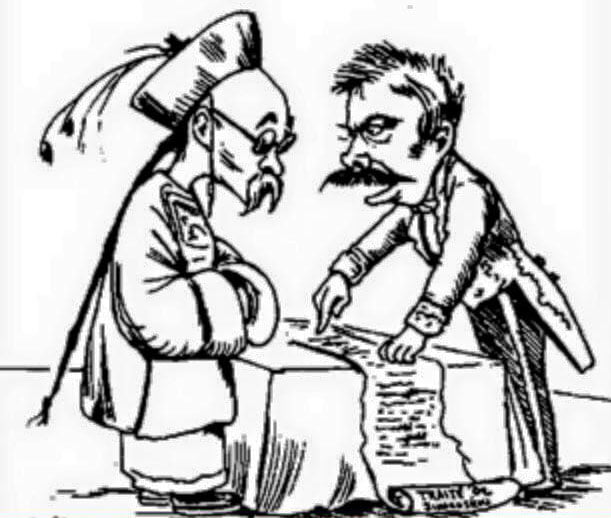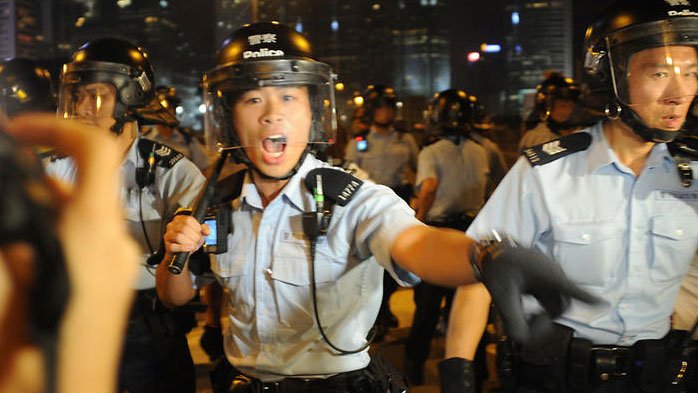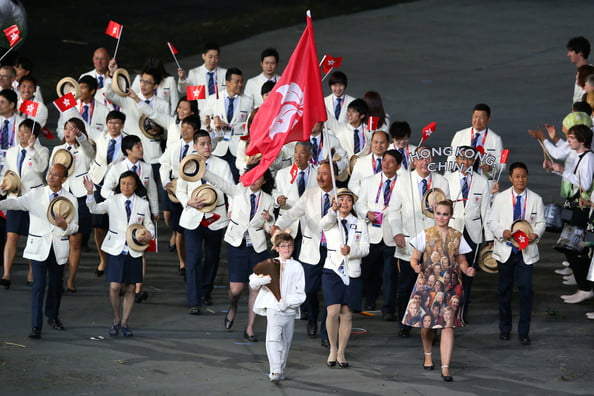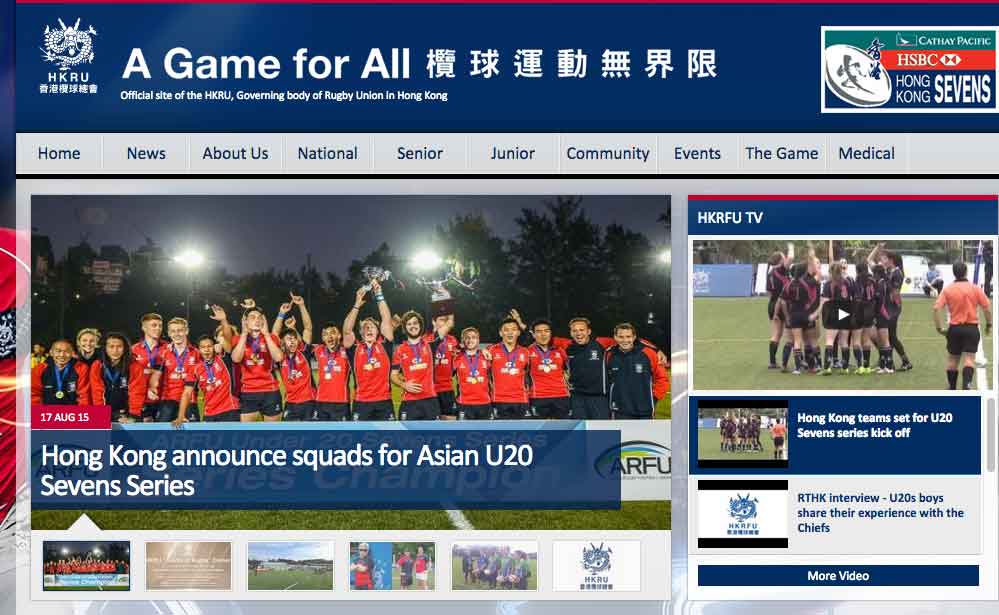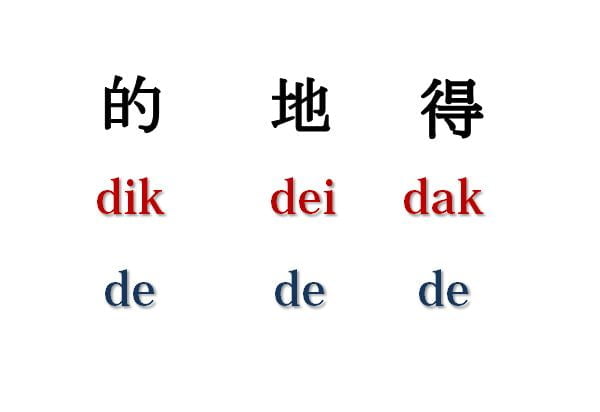
Several years ago, when I found out my daughter might not get into the primary school affiliated to her kindergarten, I panicked. I had only applied to one school and now, I had to look for alternatives.
I was not looking for a famous or prestigious school. Instead, I wanted to find a school that did not have a high-pressure test culture, one that instead stressed a more relaxed and joyful approach to learning. I was also looking for a school that used Chinese as a medium of instruction and taught Chinese in Cantonese.
This proved to be much harder than I imagined in a city where Cantonese is the main language spoken by around 90 per cent of the majority ethnic Chinese population.
According to a comprehensive survey of 512 primary schools and 454 secondary schools conducted in 2013, the Cantonese advocacy group Societas Linguistica Hongkongensis found that 71 per cent of primary schools and 25 percent of secondary schools were using Putonghua as the medium of instruction for Chinese language (PMI). This meant anything between one and all Chinese classes in those schools are taught in Putonghua.
Today, whenever officials are about the government’s position on PMI for Chinese, they repeat the line that this is a “long-term goal”. In 2008 the Standing Committee on Language Education and Research (SCOLAR), a group set up to advise the government on language education, announced plans to allocate $200 million to help schools switch to PMI.
However, there is no timetable for full implementation of this long-term goal. This should make us wonder, where did the goal come from and what are the reasons for adopting it? To try and answer these questions, I had to dig through some history.
The Mysterious Origins of the “Long-term Goal”
In 1982, the colonial government invited an international panel to conduct a review of Hong Kong’s education system. The panel recommended that Cantonese be the medium of instruction for the first nine years of schooling, so that teaching and learning would be conducted in “the language of the heart”. The recommendation was supported by the volumes of evidence that show mother-tongue teaching to be more effective.
Where it did refer to Putonghua, the panel recommended it be taught as a publicly-funded but extra-curricular subject at primary level and built into the timetable as a separate subject at secondary level.
In 1996, a report by the Education Commission said Puthonghua should be part of the core curriculum at primary and secondary levels and offered as an independent subject for the Hong Kong Certificate of Education Exams in 2000.
It also called on SCOLAR to,
“study further the relationship between Putonghua and the Chinese Language subject in the school syllabus to ascertain whether it would be more appropriate for Putonghua to be taught as a separate subject or as part of the Chinese Language curriculum in both short term and the long term.”
Note that at this stage there is no mention that Putonghua be a medium for teaching Chinese language (PMI), let alone the sole medium.
A year after the handover, in 1998, a study was commissioned to examine the effectiveness of teaching Chinese in Putonghua, to be completed by 2001. But before the studies were even finished, the first mention of the “long-term goal” appeared.
In its October 1999 review of proposed education reforms, the Curriculum Development Council said it was a goal in “the long term to adopt Putonghua as medium of instruction in the Chinese language education.”
A SCOLAR document from 2003 goes on to
“…fully endorse the Curriculum Development Council’s long-term vision to use Putonghua to teach Chinese Language.”
Yet the same document states
“…there is as yet no conclusive evidence to support the argument that students’ general Chinese competence will be better if they learn Chinese Language in Putonghua.”
In fact, of three studies referred to in the report, two studies found students’ performed no better or worse when taught in Putonghua.
According to Sy Onna, a secondary school Chinese language teacher who has studied the topic extensively, the government has never given a satisfactory explanation of why PMI for Chinese was adopted as a long-term goal. Academic research shows mixed results for the effectiveness of PMI, and has found no overall improvement in Chinese language competence.
For Cantonese language advocates like Societas Linguistica Hongkongensis, the reasons for promoting this long-term goal are clearly political – to dilute Hongkongers’ attachment to their native language on the one hand and to promote greater cultural integration with the Mainland on the other.
However, publicly at least, most proponents of PMI are likelier to cite its economic advantages and, to an even greater extent, its educational advantages.
“My Hand Writes My Mouth”
When I ask Professor Lam Kin-ping what the most compelling reasons are for PMI, he answers with the well-rehearsed assurance of someone who has answered the question many times before. Lam is Director of the Centre for Research and Development of Putonghua Education at the Faculty of Education at the Chinese University of Hong Kong, one of the organisations commissioned to carry out studies on the effectiveness of PMI in 1998.
He says he holds a fundamental “belief” that students learn better in PMI Chinese classes because they are listening, speaking, reading and writing in the same language code. Lam argues that in classrooms where Chinese teaching is conducted in Cantonese, students need to “switch codes”.
“The listening and speaking training is in Cantonese. Cantonese is at the end of the day a dialect, we can’t just write a dialect, so we have to adjust it internally, have to make it standard, switch some phrases and even sentences,” he says.
Lam thinks it makes sense to teach in Putonghua because it is very similar to written modern standard Chinese. Whereas Cantonese is a vernacular, a dialect that cannot easily be written or accepted in formal written contexts, says Lam.
For some people, this chimes with the idea of “my hand writes my [what my] mouth [utters]” – a slogan promoting the modernisation of written Chinese, harking back to the May Fourth movement of 1919 when classical Chinese was still the written standard. This core idea has been used to justify the need for PMI by scholars, education professionals and schools who support it, and is accepted without question by many parents.
But this does not make it a universally accepted truth.
Professor Tse Shek-kam, Director of the Centre for Advancement of Chinese Language Education and Research at the University of Hong Kong’s Faculty of Education, rejects the idea that students learn better in PMI classrooms because they do not have to “code-switch”. Nor does he accept that the Cantonese used in Chinese lessons is so far removed from modern standard written Chinese as to necessitate mental gymnastics.
Tse points out text-books are written in standard Chinese, which can be read aloud in Cantonese. Besides, he says, Chinese teachers do not speak in slangy street Cantonese.
“Our Chinese teachers speak very good Cantonese, very good Chinese,” he says. If anything, formal Cantonese has preserved many aspects of what would be considered literary and “proper” Chinese, he adds.
The proximity between spoken Chinese and written Chinese, “depends on the person’s education level, their reading experience and cultural cultivation.”
Tse says that if speaking good Putonghua really put students at an advantage in writing good Chinese, then students from Northeast China and Beijing, where the “purest” Putonghua is spoken would score highest in Chinese in public examinations. Yet, he says students from Shandong and Jiangsu/Zhejiang score higher.
“Both Jiangsu and Zhejiang are areas where distinct dialects are spoken, but they also have a strong tradition for literature and well-established publishing sectors,” Tse says.
For him, the advantages of teaching Chinese in Cantonese outweigh the advantages of teaching it in what is essentially a foreign spoken language to most Hong Kong students. Teachers and students are more comfortable communicating in their mother-tongue, making for livelier and more critical discussions that facilitate deeper learning.
Conflicting Evidence
In an interview with Ming Pao in April, one of the scholars tasked by the government to conduct longitudinal studies on the effectiveness of PMI, Professor Tang Shing-fung of the Hong Kong Institute of Education, said he had reservations about a wholesale switch to PMI, as evidence does not currently show PMI is a better way to teach Chinese language.
But PMI supporter Lam Kin-ping says his own observations in the classroom and reports from frontline teachers show students in PMI classes do perform better.
“We have seen improvements, for instance students can write longer articles, they consciously refrain from writing Cantonese terms and phrases, it is very easy for them to adjust [to written Chinese],” says Lam.
Lam acknowledges it is difficult to find quantitative proof of the above from research data, but he says his experiences and those of teachers convince him that it is real.
Sy Onna, who teaches separate Chinese Language and Putonghua classes at a local secondary school and is a member of the Progressive Teachers Alliance, dismisses Lam’s observations. She says being able to write longer articles with fewer Cantonese colloquialisms are not necessarily a sign of better writing.
“These are only superficial improvements,” Sy says. “As Tang Shing-fung points out, argument setting, structure and composition are just as if not more important, and these have nothing to do with Putonghua.”
This may be one reason secondary schools that teach Chinese in Putonghua often switch back to Cantonese in senior classes, as students prepare for approaching public examinations (as shown in Societas Linguistica Hongkongensis’ survey).
In a study published in 2011 of a school that switched to PMI in 2000, CUHK professor Angela Choi Fung Tam found school administrators were keen to push for PMI because they believed it would enhance the school’s reputation and help it to attract more academically able students.
This would support the view of both PMI advocate Lam Kin-ping and critic Tse Shek-kam that it is perhaps schools and parents, rather than the government who are taking the lead in pushing for the rapid switch to PMI.
But Tam’s study also found teachers were far more ambivalent – while they believed PMI would improve students’ Putonghua, they did not think it would raise their overall Chinese competence. Some senior teachers who experienced the switch said they had noticed a general decline in students’ language proficiency and school reports showed a drop in pass rates in public exams in Chinese language from 100 before PMI was introduced to around 90 afterwards.
“I think the government knows it doesn’t work, there is no evidence it works. To this day they haven’t set a timetable,” says Tse.
Making Informed Choices
I began this article outlining the predicament I found myself in while searching for a suitable primary school for my daughter. Eventually, she was accepted by the primary school affiliated to her kindergarten and we enrolled her in the sole class that teaches Chinese in Cantonese in her year. The other four classes all use PMI for Chinese.
Most of my daughter’s classmates’ parents told me they consciously chose Cantonese because they thought it would be better for their children to learn in the language spoken at home. A few of them said Cantonese was an important part of Hong Kong culture and identity.
However one parent said she was advised to place her child in the Cantonese class by education professionals, and another said it was because the PMI classes were already full. Both said they would switch to a PMI class if they could.
As I was also curious about whether my daughter’s former kindergarten classmates had ended up learning Chinese in Cantonese or Putonghua, I contacted some of their parents too. Of the eleven who replied, six had children who were in PMI classes. In most of these cases, parents said they had chosen a PMI school or class because they wanted their child to speak “native” level Putonghua. They also believed it would help their child to write better Chinese and be good for their future careers.
Three parents said they had yet to notice any changes in their children’s Chinese abilities and two said it had a positive impact. But two parents reported a negative impact. One, who I’ll call T, said her son would sometimes mix up the characters 的, 地 and 得, which are pronounced differently in Cantonese, but the same in Putonghua.
T told me, “I wish I had known then, what I know now, that writing good Chinese does not depend on Putonghua but on a person’s cultural and educational level and on how much they read.”
In terms of reading, it seems Hong Kong primary students are doing extremely well. In a study of reading literacy in primary school children in 49 countries and regions carried out in 2011, they ranked first – ahead of Taiwan which was seventh. So coming from a predominantly Cantonese speaking city does not seem to have affected Hong Kong school children’s reading abilities, a foundation for developing good writing skills.
The issue of PMI for Chinese has undoubtedly become a highly political and emotional one. But politics and emotions aside, the question we keep going back to is whether PMI is a better educational choice, and do we even have the information we need to make that judgment?
Any advantage gained through applying the principle of “my hand writes my mouth” needs to be balanced with the widely accepted principle that students learn better when taught in their mother tongue.
Through reviewing the evidence and speaking to experts, what I have learned is that PMI may improve students’ fluency in “native” Putonghua, but this can also be achieved through teaching Putonghua as a separate subject. Students may use fewer Cantonese words, phrases and grammar in their writing, but PMI cannot be said to have raised their overall competence in Chinese.
For parents like me, the choices themselves appear to be shrinking. While not all the schools teaching Chinese in Putonghua do so exclusively, many of the parents I spoke to agree with me that increasingly, the classes that teach in Cantonese are being seen as somehow “inferior”. Academically stronger kids will gravitate towards or be placed in PMI schools or PMI streams. Parents who worry their children may be labeled as less able may avoid putting them in the Cantonese Chinese class.
The government has offered incentives in the form of cash and personnel to help schools switch successfully to PMI. But school governing bodies and administrators, parents and an industry of extra-curricular literature and classes profiting from a transition to PMI are providing the momentum to push a long-term educational goal that lacks clear evidence, seemed to appear out of nowhere, and carries huge political implications.
Originally published www.yuenchan.org, July 2015
Parents Concern Group on National Education
This summer marks the 3rd anniversary of the anti-National Education movement. A number of organisations, including Scholarism, Progressive Teachers Alliance, Umbrella Parents and the Parents’ Concern Group on National Education issued a joint statement on Saturday 25th July.
There will also be a series of three seminars on PMI, the Chinese History curriculum and extra-curricular activities respectively .The first seminar on PMI will be held on August 8th at 2.30 pm in Room 103 of the Duke of Windsor Social Service Building.

